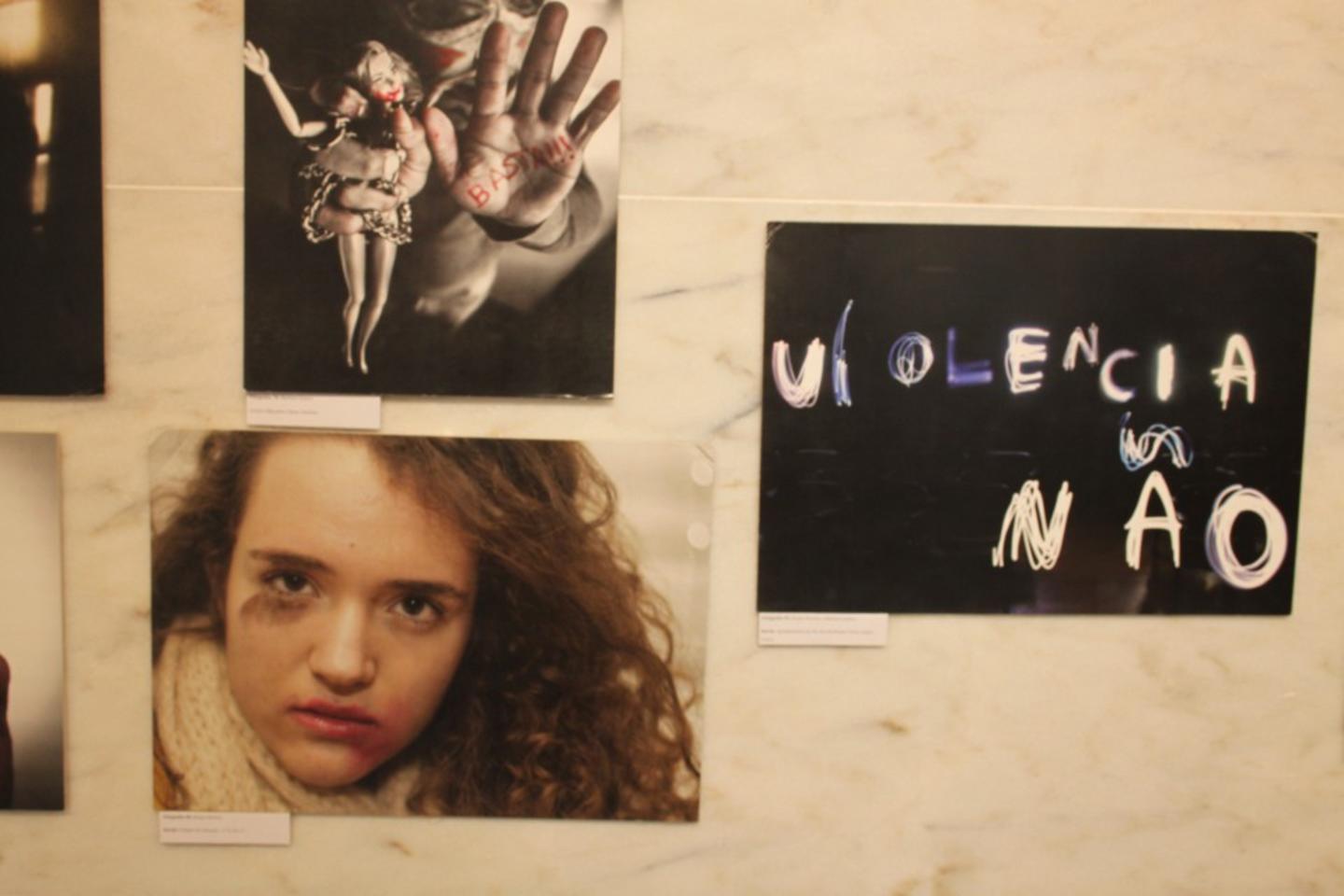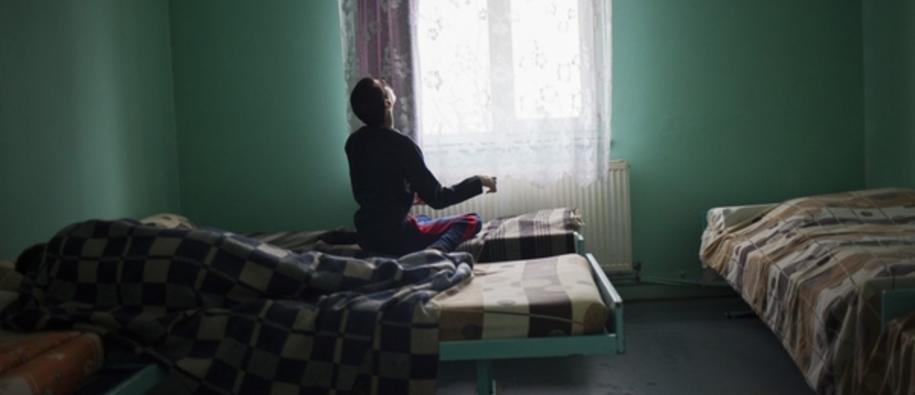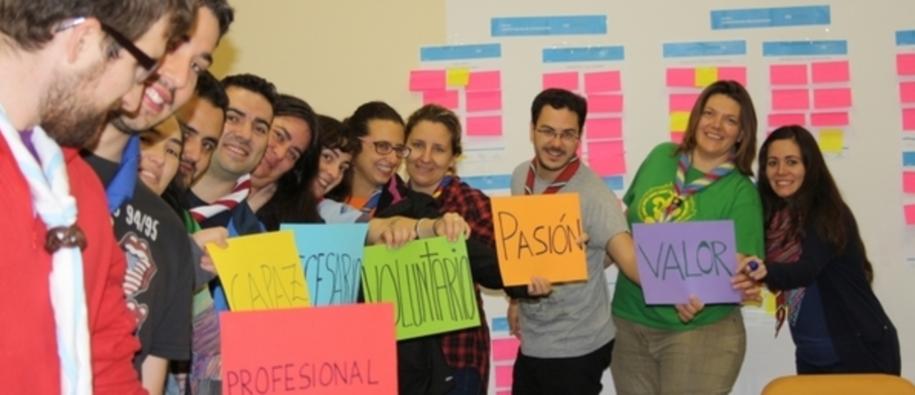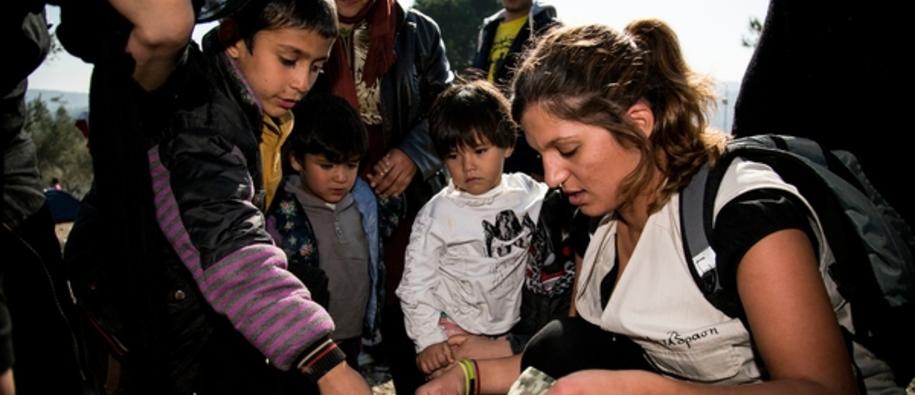This is how Linda Lapa, Vice-President of Cyprus Stop Trafficking (CST), described the impact of the NGO programme. Reliant on donations, their €100 000 grant has been a lifeline. CST has been able to expand their care services for victims and increase staffing. With that has come greater influence. After years of lobbying, CST now sits on the national Coordination Group for Combating Trafficking in Human Beings. This allows them to heighten awareness about the all-too-often hidden crime of trafficking, speak for victims, and push the authorities to tighten anti-trafficking laws. Read more
Defending human rights. Advocating for change. Giving a voice to the vulnerable...This is just one story. But those same ambitions and values are at the heart of all the NGO programmes.
In total, Iceland, Liechtenstein and Norway have allocated over €160 million to strengthen civil society. This reflects the importance attached by the three donors to civil society as a cornerstone of any fair and transparent democracy. The funding is channelled through the EEA Grants to NGO programmes in each of the 16 beneficiary countries. Around 3 000 NGOs have received funding so far, with impressive achievements.
Promoting human rights
More than 800 of those supported NGOs are working on human rights, democracy and anti-discrimination. The projects span a broad range of initiatives and issues — from protecting victims of hate crime, to driving legal change and promoting transparency in government. One of those is Romanian NGO, the Centre for Legal Resources (CLR). It works tirelessly to defend the rights of people with disabilities and mental health problems. Around 30 000 children and adults in Romania are living in psychiatric hospitals and residential centres, many in appalling conditions.
“We have conducted unannounced visits in institutions for people with mental disabilities for over 12 years now and have seen many human rights abuses,” said Cătălin Cumpănașu from CLR. A grant of €240 000 has helped CLR to raise awareness of their findings and pressurise the authorities to fully implement the UN Convention on the Rights of People with Disabilities. Read more
Building capacity
Much of the focus, as well as much of the success of the programmes, has been on building the capacity and sustainability of the sector itself. Organisational support, mentoring, and forging partnerships, particularly with local government, have helped NGOs scale up their work. This is confirmed by the 2015 mid-term evaluation which found that the NGO programmes have “increased the capacity of civil society in Central and Southern Europe and helped to mobilise citizens to voice their concerns and actively engage with governments”.
Nearly 100 NGOs have achieved new sources of funding to sustain and expand their work. More than 680 NGOs are participating in cross-sectoral partnerships. One thousand NGOs report strengthened capacity. Take Spanish project ‘Reconoce’, which set out to gain recognition for skills and experience acquired from volunteering. Twelve NGOs received support, representing 15 000 volunteers. An online system for accreditation of voluntary work has been set up. Around 1 000 young people are already using the system and 30 companies so far are on board. Read more
Change it!
The programmes also support many advocacy and ‘watchdog’ activities. Strengthening the capacity of NGOs to influence decision-making and hold authorities to account underpins grassroots democracy. Over 380 NGOs say they now have greater engagement with local, regional and national authorities. Nearly 320 coalitions and networks, bringing NGOs together to make common cause, have been established. A total of 160 laws, policies or practices have been improved as a consequence of NGO advocacy.
For instance, thanks to a grant of €60 000, the Society Ključ – Centre for Combating Trafficking in Human Beings – has been able to step up its lobbying work on the issue of teenage forced marriage. Defined as a form of child trafficking by the Society, ‘arranged’ marriages are a problem amongst the Romani population. Their campaigning efforts generated widespread publicity and resulted in a new law making forced marriage illegal and punishable by up to five years in prison. Read more
Voice for the vulnerable
Inequality still locks too many people out of our economies and societies. Reversing inequalities is at the core of many of the NGO programmes, reflecting the ambitions of Iceland, Liechtenstein and Norway for a more inclusive and prosperous Europe. Over 320 NGOs have received support to empower vulnerable groups (such as Roma, children from deprived backgrounds, people with disabilities, victims of trafficking, refugees,) and provide basic welfare services to those who fall through the net.
Approximately 112 000 people say they are now receiving better access to welfare services as a result. One NGO working with vulnerable children is METAction, an Athens-based charity that runs the ‘guardianship network’. This is a fledgling programme set up to look after some of the thousands of refugee children who arrive on their own to the island of Lesbos. A staggering 700 000 refugees entered Europe through Greece in 2015. Among the most vulnerable are these ‘unaccompanied minors’.
Each guardian looks after between 3 and 6 children — advising on their legal rights, helping them access medical care and supporting them as they wait for the asylum paperwork that allows them to travel onwards. So far, 215 minors have been cared for by a guardian. Read more
A total of €2.2 million is being spent on NGO projects supporting refugees across various beneficiary countries, in particular in Bulgaria, Greece, Poland and Romania. In addition to funds for refugees channelled through the NGO programmes, the donors also finance a €20.9 million special asylum programme in Greece, implemented in partnership with the Norwegian Directorate of Immigration.
Partnering up
A high number of partnerships between civil society organisations in the beneficiary and donor countries have been generated under the programmes. Nearly 300 projects so far involve a donor partner. These partnerships facilitate peer-to-peer learning and build capacity through introducing innovative approaches from the donor countries. Having a donor partner also increases the legitimacy of civil society organisations in the beneficiary countries.
Many of the best practices gleaned from the cooperation have been used to trigger social innovation. For example, seven Hungarian NGO professionals spent three to six months in 2015 at host organisations in Norway or Iceland. One of those is Zsofia Hetesi, Head of the TÁMASZ Foundation in Pécs. She undertook a four month internship at Jæren Psychiatric Center in Norway, to learn about Norwegian system for rehabilitation of patients with mental health problems. She is now drawing up a pilot programme to extend psychiatric services into the system of homeless care in Hungary, and has continued contact with her colleagues in Norway. Read more
Internationally, the EEA and Norway Grants are also a strategic partner to the Council of Europe’s No Hate Speech campaign. All of the NGO programmes have made a strong contribution to the campaign which mobilises action to tackle hate speech and online extremism.
More
This is just a snapshot of some of the results and stories. More detailed information on NGO programmes in each country, results and project stories is available here.



